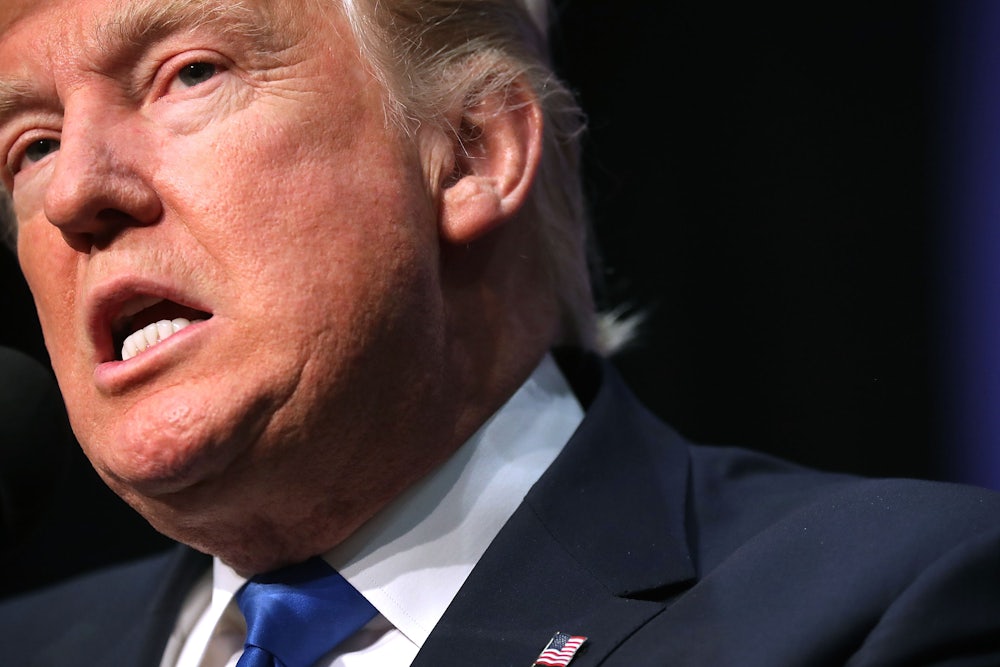Since announcing his candidacy for president last year, Donald Trump has made many promises that frighten the international community. He vowed to radically alter traditional alliances like NATO, turning them into versions of protection rackets, and to tear up existing trade deals and make them more favorable to the United States. He is “going to cancel the Paris climate agreement.” Openly contemptuous of international law, he explicitly said he’d order the military to commit acts that violate the Geneva Convention. He has expressed admiration for Russian President Vladimir Putin, and is unbothered by nuclear proliferation.
Now Trump has won the presidency on a platform of ethno-nationalism, and his victory will have enormous consequences not just for the United States but for the entire world. By making Trump the most powerful man on Earth, Americans have abdicated their country’s role as the world’s leader.
Trump’s success amounts to a reversal of the broad consensus that has governed American foreign policy since the late 1930s, when President Franklin Roosevelt began to move the country away from its interwar posture of isolationism. He and all subsequent presidents shared a broad internationalist philosophy that the U.S. had a duty to uphold the international order through military alliances, support for international organizations like the United Nations, and trade agreements.
Trump’s foreign policy message is a stark repudiation of this bipartisan consensus. Under his rule, the U.S. will no longer be the guarantor of the international order, but rather pursue national interests unilaterally with only its self-interest in mind. What would a world look like where America is no longer the anchor of the international system? The only precedent we have—the global order that existed between the two World Wars where the British Empire was in decline and America refused to step up to the plate—is hardly reassuring. We’d be back to a Darwinian international order, with great powers like Russia and China enormously emboldened.
Policies to push for human rights, which have been part of America’s agenda since World War II, will no longer have the support of the government. Nationalists all over the world, ascendant as they already are, will be further emboldened by Trump’s triumph and try to instigate similar policies.
This calamity for democracy will of course hearten fascists all over the world - from eastern Europe to le Pen.. and Putin's Russia a victor
— Simon Schama (@simon_schama) November 9, 2016
this is a world historic tragedy in the making - and a changing of the geopolitical order
— Edward Luce (@EdwardGLuce) November 9, 2016
It’s important to remember how Trump rose to power. The ethno is just as relevant as the nationalism. He made overtly bigoted appeals to white grievance, which is just another way of saying he ran for president as a racist. When he promised to “Make America Great Again,” he did not mean simply that the nation would turn inward, away from the international community, but also that the “real America”—code for white America—would return to cultural dominance. His campaign was an explicit rejection of an increasingly diverse, multicultural America (one whose changing demographics, it should be said, were supposed to have delivered victory to Hillary Clinton).
This, too, is a detour from America’s longstanding position in the world. After all, the liberalism abroad that began under Roosevelt went hand in hand with increasing liberalism at home. Many of the major improvements in civil rights in America (notably the dismantling of Jim Crow laws) came about because the U.S. government was aware that its reputation as the upholder of the international liberal order meant it had to fulfill the very obligations it presses upon other nations.
America’s international influence has grown in concert with its progress domestically, and this was by no means coincidental. Over the last 70 years, liberalism at home and abroad worked together. Now we will see what happens to the world when liberalism at home collapses. But it’s safe to say that the fear Trump sowed in America has now spread across the globe.
